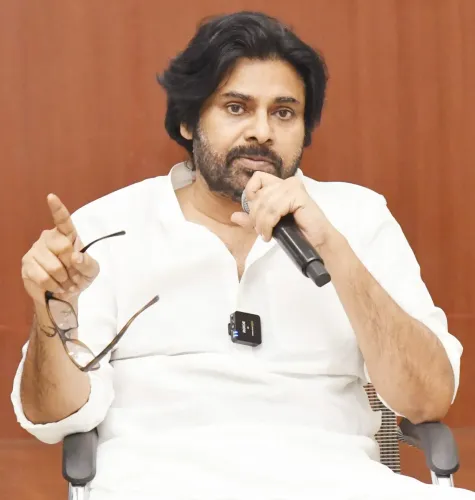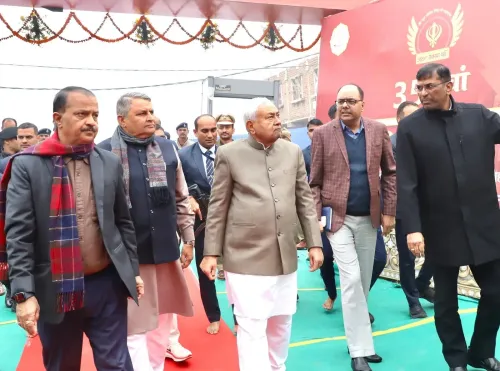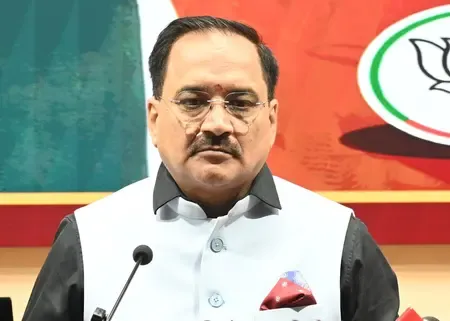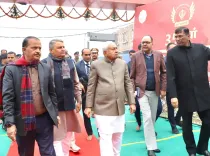Did ABVP’s Victory Signal Student Sentiment Shift Over Rahul Gandhi’s Allegations?
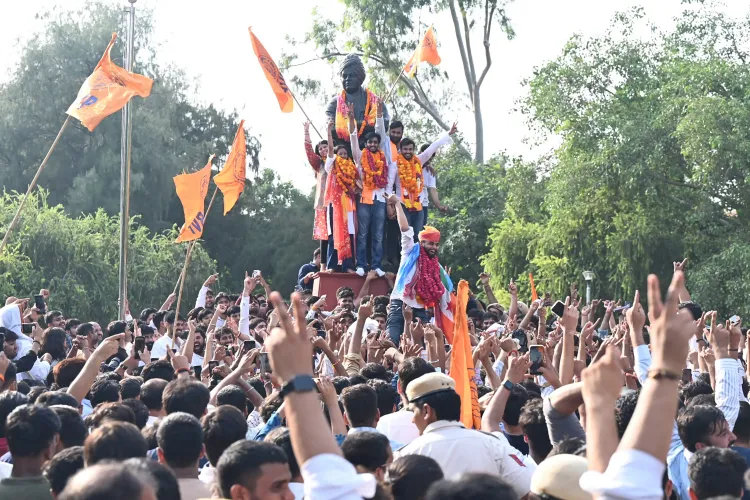
Synopsis
Key Takeaways
- ABVP won three out of four key positions.
- Rahul Gandhi's appeal did not resonate with voters.
- The election reflects shifting student political sentiments.
- NSUI must reassess its strategies for future elections.
- The campus remains a vital recruitment ground for national parties.
New Delhi, Sep 16 (NationPress) Voters at the Delhi University Students Union (DUSU) elections seemingly dismissed Congress leader Rahul Gandhi's appeal to the youth regarding an alleged 'vote chori' narrative, electing three candidates from the Akhil Bharatiya Vidyarthi Parishad (ABVP) to four central positions.
They also overlooked the Congress-affiliated student union's commitment to a 'Mohabbat ki Dukaan'—a shop of love—on campus aimed at promoting unity, love, and respect.
The notion of a 'Mohabbat ki Dukaan' stemmed from Rahul Gandhi's assertion that the ruling party was fostering hatred nationwide.
This approach, however, failed to mitigate the ABVP's significant victory on Friday.
In a landslide win, the RSS-affiliated students' organization regained the president's position, along with the secretary and joint secretary roles. The National Students’ Union of India (NSUI) managed to retain only the vice president's seat.
This outcome reversed the limited gains NSUI achieved in the previous elections. It underscores ABVP's expansive organizational reach, focused campaigning on essential campus issues, and overall popularity over mere insinuations.
The DUSU election results largely mirror national political dynamics.
ABVP is often regarded as an extension of the Bharatiya Janata Party’s (BJP) outreach on campuses. Its success indicates a strong foothold for organizations linked to the ruling coalition and hints at a shift in student political sentiment across Delhi's universities.
This result recalibrates the competitive landscape in student politics following NSUI's partial resurgence in 2024, when it won two of the four central positions.
ABVP's extensive organizational framework and campus visibility facilitated more effective voter engagement and logistical coordination.
Its focus on everyday campus challenges seems to have struck a chord with students' practical interests.
NSUI highlighted free Wi-Fi services, emphasized safety and hostel welfare, and proposed special leave facilities for female students, among other initiatives.
In his campaign manifesto, the ABVP presidential candidate pledged subsidized metro passes, free Wi-Fi throughout the campus, accessibility audits for disabled individuals, and enhanced sports facilities.
Meanwhile, this result heightens the ABVP-NSUI rivalry on campus, with the victorious president and his team expected to deliver promised results promptly.
On the other hand, NSUI will concentrate on consolidating its position and exerting pressure before the next elections.
The campus continues to serve as a recruitment hub for national parties. The recent outcome has bolstered ABVP, allowing it to replenish its allied cadres at municipal and state levels.
While NSUI will reassess its strategies to regain lost ground in the future.


